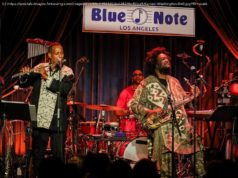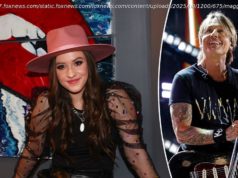Kanye West has made himself more compelling than the music he makes.
You’d think that Kanye West releasing his first album since 2016’s The Life of Pablo would be the biggest Kanye news of 2018. But in the past two months, Kanye’s behavior has overshadowed anything else he’s done and made it impossible to talk about, or listen to, his new Ye without conjuring up weeks’ worth of controversy.
Kanye released Ye on Friday, complete with a listening party in the middle of Wyoming, and within hours, both the reviews and the takes were flying fast. But the furor around Ye is less focused on the album itself — which, at only seven tracks and 24 minutes, is more properly categorized as an EP — and more on how it fits into the ever-evolving notion of who Kanye West is in 2018.
In the past two months alone, Kanye has, among other things, publicly voiced his support for Donald Trump, said slavery was a “choice,” and aligned himself with far-right and white supremacist talking points. Instead of the news being that Kanye West created a new album, the news is that Kanye West, amid this erratic and bombastic behavior, created a new album.
Listening to Kanye’s new album means supporting Kanye. And right now, for many people, supporting Kanye is a dilemma.
This isn’t a unique dilemma; we’re often faced with the separation of art and artist in our culture, particularly in the wake of #MeToo. In some cases, and for some people, that’s easier said than done. But with Kanye West, it seems all but impossible.
West’s past two months have been tumultuous, brimming with political controversy and baffling behavior, all while he was ostensibly putting the final touches on Ye. There are parts of Ye that appear inspired by the recent controversies surrounding West, but even if his behavior weren’t at all connected to the new album, it would be impossible to separate one from the other.
Back in April, after a prolonged silence on Twitter, West exploded back onto the social media platform with a series of tweets professing his love for “my brother” President Donald Trump and praising Trump’s “dragon energy”:
West also showed off his “Make America Great Again” hat, which Trump signed:
West’s tweets likely would have garnered interest no matter what, but they were particularly incendiary in the context of West’s previous political statements. West is the same person who once said “George Bush doesn’t care about black people” after the disastrous response to Hurricane Katrina — a disaster that disproportionately affected black Americans — on national television, during a telethon fundraiser for disaster relief. These tweets show him essentially reversing those politics, showering love on a president who called African nations “shitholes.”
Then, while Kanye-watchers were still in the midst of grappling with the implications of this reversal, West made an appearance on TMZ Live in which he said that slavery was a choice.
“When you hear about slavery for 400 years — for 400 years? That sounds like a choice,” West told the TMZ newsroom . “Like, you were there for 400 years, and it’s all of y’all?”
West walked back his statements somewhat, saying that he knew that African men and women were literally shackled against their will. But he doubled down on a narrative that they were “mentally enslaved,” that there was a choice to not fight back.
“My point is for us to have stayed in that position even though the numbers were on our side means that we were mentally enslaved,” West wrote on Twitter .
That narrative, as Vox’s P. R. Lockhart pointed out, is used to invoke the argument that the Civil War was fought not to preserve slavery but to defend states’ rights. It’s also a narrative that blames enslaved people who didn’t escape for the bondage forced upon them.
With these statements, West has echoed, on a national megaphone, a narrative that erases the injustice inflicted on black men and women, and bolstered lies circulated by white supremacists. If West’s comments are what he truly believes, and not a very poorly conceived marketing ploy, then buying or streaming his new album could feel like supporting West’s beliefs — not just his music.
This narrative appears to have worked in the opposite direction as well, with West’s support for Trump and MAGA winning his album some right-wing fans:
Instead of leading with an album that makes us curious about where Kanye West is as an artist and person, Kanye has led with controversy, essentially making us curious about an album through the actions of an artist. That puts Ye in the position of commenting on — and, depending on your position, answering for — its creator’s behavior over the preceding months. The answers on Ye aren’t evocative or provoking enough to live up to the prelude.
In hip-hop in particular, there’s merit in one’s truth, be it personal or political. This is what makes it so hard for fans to separate West’s new album from his recent statements.
Over the past few years, there’s been an ongoing cultural debate over whether authenticity even exists in hip-hop anymore, or whether it was always a myth. The idea of “realness” has a sliding scale from rapper to rapper: Some use it as a marketing tool, as part of their image — particularly to push back against perceived posers. In the most extreme extrapolation of this perceived authenticity, rap lyrics have been used in court as evidence against rappers.
But no matter your opinion about authenticity’s place in hip-hop, there’s a perceived worth to it all the same. West tweeted about authenticity’s value in April:
Given the value Kanye places on his own authenticity, it logically follows that Ye is reflective of who Kanye West considers himself to be in this moment — that he believes his true self is worth the backlash his actions have wrought.
So it’s perhaps unsurprising that a common criticism of Ye is that it’s underwhelming, given the interest Kanye has generated in the past couple of months, that it’s a meager main course that doesn’t live up to the appetizers he’s served in anticipation to it. The New York Times called Ye “surprisingly slight,” while Pitchfork called the album “thoroughly, exhaustingly boring.” The Guardian, one of the more favorable reviews, called it “bold, risky, infuriating, compelling,” but tempered that by noting that it is a “little exhausting.”
If Ye feels slight, boring, and exhausting, it’s at least in part because West has, through his recent statements, created a context in which the album has to answer for so much, has to give insight into a figure who has raised so many questions and provoked so much discussion. Even at twice the length, it’s debatable that Ye ever could have done that.
If there’s one track that helps unlock what we’ve seen Kanye go through in 2018, it’s “ Yikes,” a throbbing, spooky tune in which he raps about his bipolar diagnosis, his anxiety, and how he terrifies himself.






